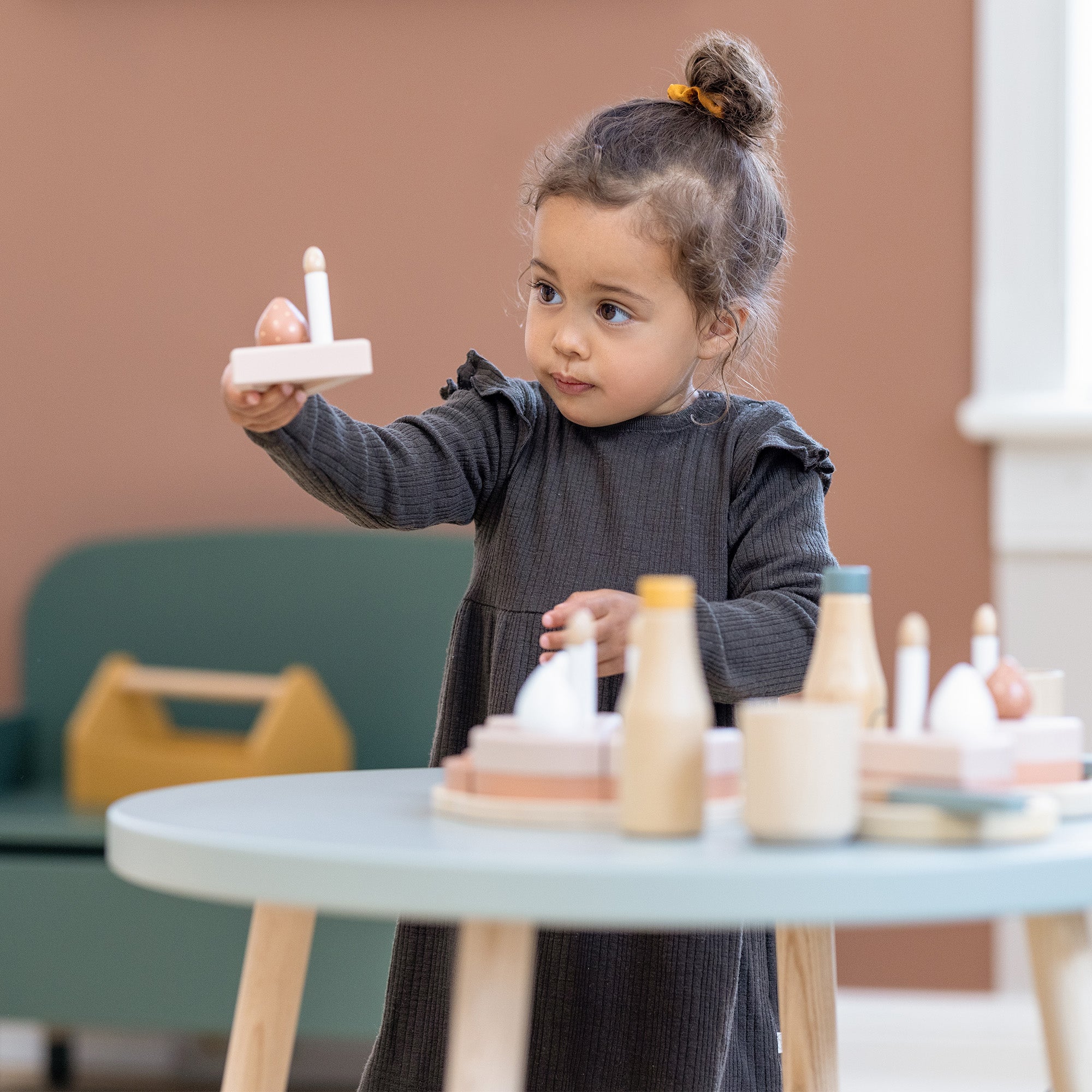When children play, it might look like they’re taking a break from serious learning. But in fact, play is their way of learning. When your child plays peekaboo, board games, shopkeeper and customer – well, when they engage in ANY kind of play activity – they develop both physically, cognitively, and socially.
Highlights:
- When children play, they experiment with life itself and all its facets.
- Children play to understand themselves and the world around them.
- The developmental benefits of play are endless, but they can be grouped into:
- Physical benefits: play helps your child develop great motor skills.
- Cognitive benefits: play is your child’s way of processing information.
- Social benefits: play is the most direct way your child can connect with others.
Play is Learning
Little babies who reach out to touch their parents’ smiling faces naturally develop their gross motor skills and sense of touch. Toddlers who playfully drop toys to the floor learn to understand the concept of gravity. And a group of older children who role play a birthday party build strong, social relations and develop their language skills while playing.
“When children play, they experiment with life itself and all its facets. They dream, tell stories, make up worlds of fantasy, and they do this to learn about life, to understand the world around them, and to become familiar with their own role in this world," explains expert in children’s play, Joern Martin Steenhold.
The developmental benefits of play are endless, but they can be grouped into three main areas: physical benefits, cognitive benefits, and social benefits.
Play equals movement, and from dynamic movements such as dancing, jumping, sliding, balancing, and climbing, your little one learns a great many things. Children’s Occupational Therapist, Mette Vainer Wegloop, summarises:
“Physical play is the perfect workout, as it exercises both your child’s sense of balance, sense of touch, and sense of muscles and joint coordination. When little children exercise those three senses during their first years, they lay the foundation for great motor skills, and they learn to control and coordinate their body position to external surroundings. And a bonus is: active playtime makes children hungry and tired, so it also has a positive effect on their appetite and their sleep.”
As your child plays, every little bit of information they have gathered during a day gets processed and catalogued in their brain. Family advisor, Lola Jensen, shares her insights:
“This happens both when children role play with their teddy bears, dolls, or superheroes and when they sit still and work concentrated on a puzzle, for instance. Through play, they make meaning of tricky situations, overwhelming feelings, or disagreements they have had with others, but in a safe and unharmful way.”
From around age three, children begin to play with each other. They develop an understanding of social norms and learn for instance what it means to care for each other, to compromise, and to motivate others. Joern Martin Steenhold has found:
“Play is the most direct way in which children can connect with each other. They approach each other with new ideas for fun games, and with everyone aboard it’s time to distribute the roles. Children are born with an urge to socialise, but it’s through play, they learn the value of social relations.”
Have fun playing!

